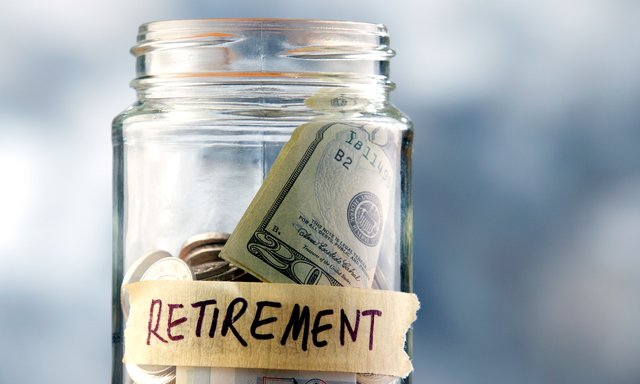US Taxpayers & Crypto don't get along that well
Are you a US citizen living anywhere in the world? Own some bitcoin or other crypto? Listen up as this might be some critical information for you to know...

Firstly some waivers... I'm not a CPA. I'm not a lawyer. I don't play one on TV. I'm not your financial adviser. This is not financial advice. Your mileage may vary, and other commonly stated waivers of liability.
Now we've gotten that out of the way, let me tell you my story and how this all relates to taxes. Trust me... The crypto stuff is towards the end of this blog, but the back story is important.
I'm a dual citizen (US & Australian). I've lived in the USA for about 25 years. I pay my taxes annually like everyone else. My wife is also a dual citizen (US & Australia). Life is good. Or so I thought....
Every year my CPA does my taxes and he would ask me (routinely), "Do you have any assets with a combined value of over $10,000 outside of the USA?". I would routinely answer "Nope". And we'd get back to the filing of the taxes. One year I asked him why he asks that, and then he told me about a thing he has to file called a FBAR statement. It is a form that is required to be filed for anyone that has more than $10K of combined assets outside of the USA.
A couple of years ago, I was watching YouTube. I stumbled across this channel: https://www.youtube.com/user/irsmedic
I would watch their videos because they had some awesome information for dual citizens, but most of the content was for ex-patriot US citizens that were living and working overseas. There were some real horror stories of some that had to renounce their citizenship because of a ton of draconian laws relating to getting bank accounts, employment, etc. as ex-pat Americans. I mean situations like a company stations you to work in some foreign jurisdiction and doesn't tell you all about the tax and filling obligations, or you meet some wonderful person and fall in love and move to their country, get married, etc. and next thing you find yourself in hot water (not from the relationship, but the legal/financial stuff). Anyway most of it never related to me. I couldn't see anything relevant.
Until I realized that my wife had a retirement account in Australia that was a mandatory thing there. You see back in the 1980s, the Australian govt (in an attempt to avoid a massive social security burden) passed a law that forced all employers to take out about 8% of a workers salary and invest it in a thing they call a "Superannuation fund". It's like a 401k. The thing is that it is mandated by law. You can't opt out. And then when you leave your employment, you can't get access to it (without some significant penalties and a ton of due process to file) until you are at retirement age.

Over time my wife's super fund (as they would call it) grew. It was invested and these things compound. Eventually she has a decent nestegg in there. We decided that we were not likely to return to Australia to live, so we called up the company that was managing the fund to cash it out (even if there were penalties involved). They told us point blank that we couldn't because we were no longer residents of Australia. That it would be held until either she becomes a resident or reaches retirement age. So basically "No money for you".
Well as it happens, this was more than $10K. Oh crap.
What a great realization to find. Then I start to research the penalties for not filing. $10K per year (potentially more - they can take up to 50% of the fund) and they can go back a LONG TIME. Basically you could your shirt here, and it's a criminal offence to not disclose. These laws were created to jail all those crooks that were stashing tons of money in the Cayman Islands and not disclosing it. But these days all the banks computers talk to each other, and so you can't hide money anymore.
I'm not a crook so I wanted to make good with this. I ended up hiring IRS Medic to take care of this, and thankfully at the time there was a Non-Willfull Offshore Voluntary Disclosure program in effect and we took advantage of that. They cleaned up the mess, filed all the right paperwork and now each year I have them oversee all the filings, and life is good again. The IRS didn't levy any penalties on us for this because our attorneys took care of it correctly.
So what does all of this have to do with Crypto?
Just as I had to learn a lesson about how the laws work, and how holding assets can be a burden, I also learned a lot about crypto. In December 2017, the US government passed Tax Reform into law. Unfortunately they neglected to ease the burden on ex-pats with tax filings, etc. but one very subtle and important thing was added into the tax laws...
When you exchange one form of crypto for another, you create a taxable event. This means if you are a US taxpayer (either in the US or an ex-pat) and you buy Steem, you likely purchase it with Bitcoin. If you use Coinbase or some exchange like that to get your Fiat currency into BTC and then use BlockTrades or something like that to get Steem, the second you make the conversion of BTC to Steem, it is a taxable event. That means you have to report the gains or losses on the BTC that you just converted to the IRS in your tax return. And the reverse is true as well. If you generate Steem and convert it back to BTC, that's a taxable event. And if you then convert the BTC back to Fiat $USD, that's another taxable event. You get the picture. Lots and lots of freakin' paperwork and filing details.

The same is true of any crypto to crypto transaction. Sites like Shapeshift.io and similar have routinely provided an exchange service between cryptos, but even they are not having to abide by KYC/AML (Know Your Customer/Anti-Money Laundering) rules. It is rare to find exchange services that will do anything without abiding by US law. And offshore is being affected in the same manner in that with US FATCA regulations on banking, offshore exchanges are either shutting down or requiring a lot of identification paperwork in order to use their services. But know that the KYC/AML regulations are typically because that information is often required to report back to US Tax Authorities who will monitor the activities of US persons who engage in financial transactions outside of the domain of the USA. Well they do it inside the domain as well, but I guess that goes without saying.
I've spoken to so many people who blindly go into buying some Bitcoin, or getting a Steem account, or even buying something offshore (and are US citizens) and have no idea of all the traps here. They are huge. But there is one more thing that is important to realize...
According to some people in the tax industry (incl. attorneys, CPAs, ex-IRS people, etc.) that I've talked to, they are saying there is a quantum shift in methodology within the IRS in regards to audits and penalties. Since the US congress constantly constrain the IRS budget so that they can't afford to hire more tax investigators, they are resorting to using computers more and more to do the investigation work. And they also realize that since filling of forms in a timely manner can be easily monitored by computer, the same computer can send out the penalty forms using a simple computer program rather than a human ever doing anything manually. Hence the focus is on how do they maximize penalties for non-filing rather than spend days or weeks of labor on a single audit, only to often find that there is nothing wrong and the labor was lost. It is just easier to use computers to do the work and then send out the penalty forms.
So be warned. There's a computer out there watching your every move, and making sure you are filing everything needed on time, and correctly. Because the incentive to the IRS for you making a mistake here is huge. The US has a $21T debt to pay, and your lack of filing the right forms might just help them pay it all off.
Morale of the story.... Get an attorney or a CPA that really understands your situation, particularly if you are doing any business outside of the USA, or holding assets, or are involved in the crypto space. The traps are huge and I'd hate to see you fall into them.